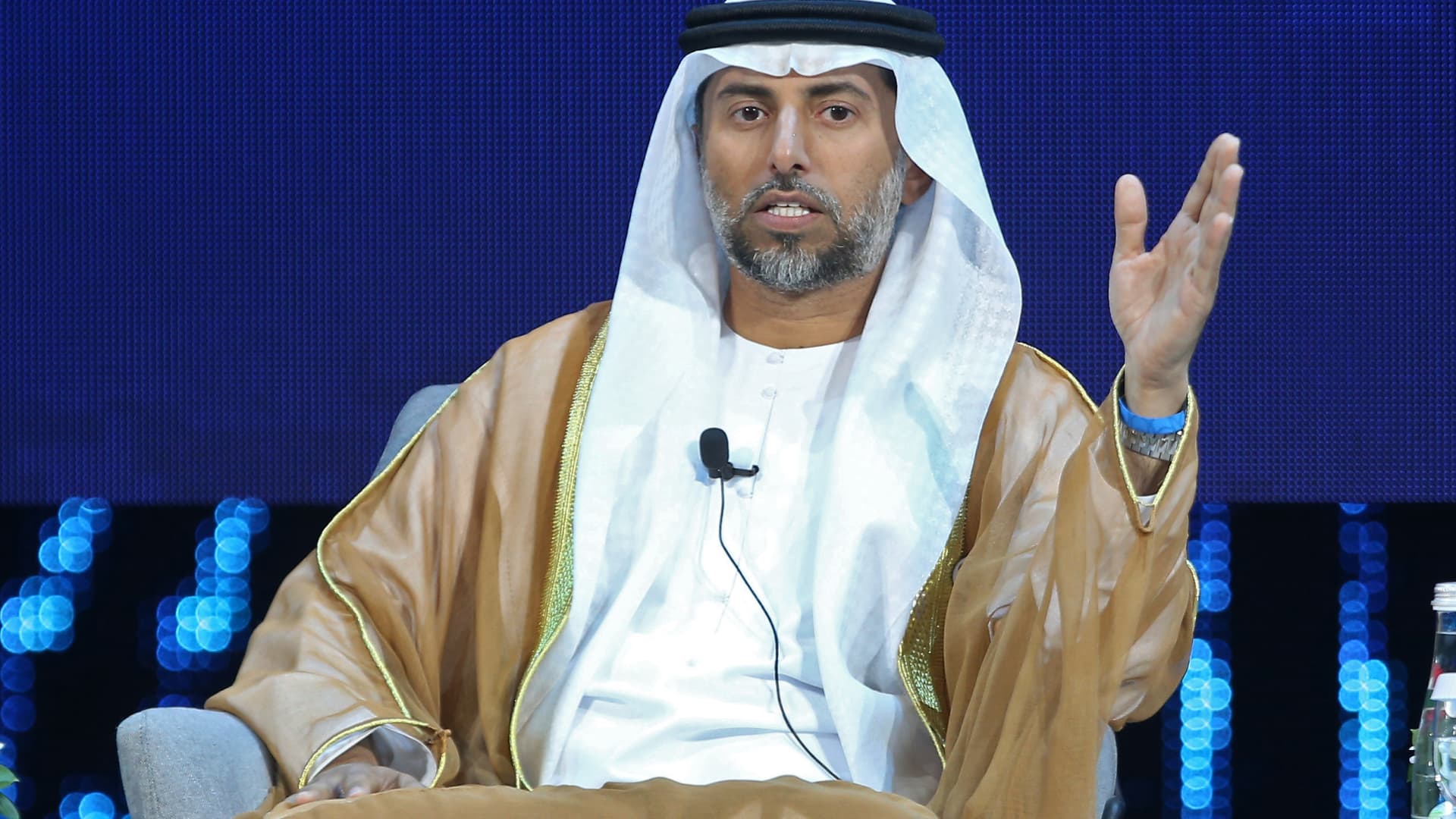JPMorgan’s calls for a “reality check” on the world’s energy transition goals and pathway is a “sensible,” the UAE’s energy minister told CNBC.
“We need always, whenever we put up predictions, especially long term ones, to have a reality check,” Suhail Al Mazrouei told CNBC’s Dan Murphy in Riyadh, Saudi Arabia on the sidelines of the World Economic Forum.
In a recent note to client, JPMorgan warned that the world needed a “reality check” on its efforts to move from fossil fuels to renewables, pointing out that it could take “generations” to reach net-zero targets.
Higher interest rates, inflation and the ongoing wars in Ukraine and the Middle East are setting back efforts to reduce the use of fossil fuels like oil, coal and gas, the report said.
“I think it’s a very sensible article,” said Al Mazrouei. The minister, however, highlighted that the circumstances and financial capabilities of each country on undertaking the energy transition goals will vary.
The world is not the same… Some can afford it. They worked on fiscal changes, they adjusted their energy costs. Others have not.Suhail Al MazroueiUAE’s Minister of Energy
“The world is not the same … Some can afford it. They worked on fiscal changes, they adjusted their energy costs. Others have not, [they] cannot afford to do it,” he added.
The world’s governments agreed in the 2015 Paris climate accord to limit global average temperature to well below 2°C above pre-industrial levels, and pursue efforts to limit the temperature rise to 1.5°C. To do that, emissions need to be reduced by 45% by 2030 and reach net zero by 2050.
A higher interest rate environment is also making it costlier for the world to transition to a net zero global economy, energy consultancy Wood Mackenzie said in a recent note.
Higher interest rates disproportionately affect renewables and nuclear power, said Peter Martin, Wood Mackenzie’s head of economics, adding that high capital intensity and low returns mean future projects will be at risk.
“The higher cost of borrowing negatively affects renewables and nascent technologies, compared to more established oil and gas, and metals and mining sectors, which remain somewhat insulated,” he said.
Just this month, Scotland’s government scrapped its 2030 climate target, with its Net Zero Minister Mairi McAllan saying the goal is “out of reach.”
She added that “severe budgetary restrictions imposed by the UK government” had a part to play in the retreat. The country had pledged to pare back emissions of greenhouse gases by 75% by 2030, compared to 1990 levels.
Major oil companies such as BP and Shell also trimmed back on climate targets this year.
The UAE is one of the countries that signed up to triple the world’s capacity for nuclear energy by the year 2050.
